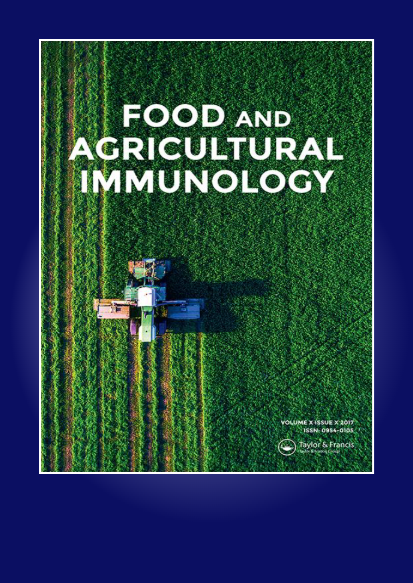人参皂苷化合物K通过bclaf1介导的ERK信号调节诱导人肝癌细胞线粒体凋亡
IF 2.1
3区 农林科学
Q3 CHEMISTRY, APPLIED
引用次数: 0
摘要
化合物K (CK)是二醇型人参皂苷的代谢产物和最终活性成分。本研究通过体外和体内实验,探讨CK对SMMC-7721和BEL-7404细胞线粒体凋亡的影响及其调控机制。结果表明,CK能抑制肝细胞癌(HCC)细胞的增殖,使细胞停留在G0/G1期。CK诱导HCC细胞线粒体凋亡,抑制p-ERK表达。Bcl-2相关转录因子1 (Bclaf1)分布在细胞核和细胞质中,CK抑制其表达。用CK处理SMMC-7721细胞的裸鼠异种移植模型降低了Bclaf1、p-ERK和Bcl-2的表达,但增加了Bax的表达。综上所述,人参皂苷CK在HCC中下调Bclaf1的表达,抑制ERK通路的激活,引发线粒体凋亡。这些发现揭示了一种潜在的治疗策略,利用CK对HCC的抗肿瘤作用。本文章由计算机程序翻译,如有差异,请以英文原文为准。
Ginsenoside compound K induces mitochondrial apoptosis in human hepatoma cells through Bclaf1-mediated modulation of ERK signaling
ABSTRACT Compound K (CK) is the metabolite and final active ingredient of diol-type ginsenosides. In this study, we investigated the effect of CK on mitochondrial apoptosis in SMMC-7721 and BEL-7404 cells and the regulatory mechanism through in vitro and in vivo experiments. The results demonstrated that CK inhibited Hepatocellular carcinoma (HCC) cells proliferation and arrested the cells in G0/G1 phase. CK induces mitochondrial apoptosis in HCC cells and inhibited p-ERK expression. Bcl-2 associated transcription factor 1 (Bclaf1) was distributed in the nucleus and cytoplasm, and CK inhibited its expression. Treatment of a nude mouse xenograft model bearing SMMC-7721 cells with CK decreased the expression of Bclaf1, p-ERK, and Bcl-2 but increased that of Bax. In summary, ginsenoside CK downregulated Bclaf1 expression, inhibited the activation of the ERK pathway, and triggered mitochondrial apoptosis in HCC. These findings uncovered a potential therapeutic strategy leveraging the anti-tumor effects of CK against HCC.
求助全文
通过发布文献求助,成功后即可免费获取论文全文。
去求助
来源期刊

Food and Agricultural Immunology
农林科学-毒理学
CiteScore
5.30
自引率
6.70%
发文量
52
审稿时长
2 months
期刊介绍:
Food and Agricultural Immunology is an international open access journal publishing original immunological research with applications in food, agricultural, environmental and veterinary science. Submissions describing the use of immunological techniques and methods are particularly welcomed.
The journal aims to expand our understanding of the interactions at the interface of food and immune systems including studies on:
-Development of diagnostic systems – all types of ligand-based assays, e.g. antibody, aptamer
-Application of ligand-based assays for the detection or identification of molecules of interest in food science, agricultural research, veterinary investigations and clinical systems relating to food allergy or sensitivity to agricultural chemicals
-Effects of food on the immune system
-Studies on allergy and allergic reactions
-Investigations into food allergies
-Development of allergen-free food systems
-Development of novel assay formats
-Applications of assay systems to the monitoring of food items in relation to safety and labelling
-Food quality issues, e.g. speciation, adulteration and contamination
-Comparisons between different analytical techniques
The journal publishes research and review articles and is essential reading for food scientists, immunologists and all those concerned with the interaction between food and immune systems.
 求助内容:
求助内容: 应助结果提醒方式:
应助结果提醒方式:


